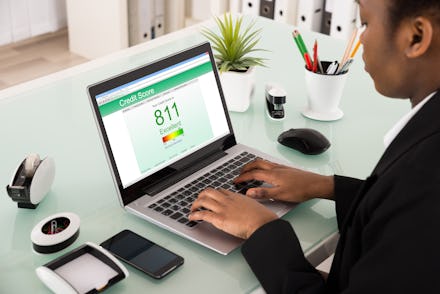Improve your credit score and history — without credit cards

You'd like to buy a house or a car, but the loan officer says your credit score is too low and either rubber stamps a mean, red "no" on your application — or presents you with a ridiculously high rate.
All because of a stupid credit score? Credit scores matter because they tell the lender you have a reliable repayment track record on loans like credit cards and student debt. But the Great Recession led many millennials to avoid using plastic — or even applying for a credit card at all — after witnessing the harsh realities of what happens when you borrow more than you can afford.
"It's pretty clear that young people are not interested in becoming indebted in the way that their parents are or were," payment industry expert David Robertson told the New York Times.
But there's hope. Achieving a solid score of 700 or greater is possible — if you know what to do. Here are three smart moves that can make a big difference.
1. Pay yourself with a credit builder loan
Do you have $500? You can actually start building credit right away with what's known as a credit builder loan.
"A credit builder loan is a small loan that is secured by a 12-month CD," Elyssa Kirkham from Student Loan Hero, said. "You put some cash into a CD held by the lender, which they use as collateral for a loan — almost like you're borrowing from your own savings. Then you pay back the loan over 12 months, and the payment history is reported to the credit bureaus. At the end, you've improved your credit and your CD, plus interest, will be released back to you."
"You are essentially saving your own money and receive a nice sum back in the end," NerdWallet personal finance expert Liz Weston said.
You can find a credit builder loan through your credit union or by searching on SelfLender. Once your loan is reported to an agency like Experian, you should get a FICO score within six months, according to CreditCards.com. It's worth noting that the annual percentage rates on loans could be as high as 23%, so it pays to shop around for the best rate.
2. Report your rent payments
Companies like RentalKarma, RentTrack and RentReporters provide a way for renters to build credit, even if the landlord doesn't report payment activity to a credit bureau, Kirkham said.
The companies charge a small set up and monthly fee to have payments reported to credit bureaus, but not all credit bureaus receive the information. "The main credit bureaus may not necessarily receive the rental payment information, so only using this method to boost credit may not be as reliable," Weston warned.
Before signing with a rental reporting agency, be sure to ask which of the major credit bureaus will receive the payment information, the total yearly costs and personal data security.
3. Try peer-to-peer lending
Companies like Lending Club and Prosper connect borrowers seeking a loan with individual investors willing to lend the money in what is called peer-to-peer lending.
Depending on your credit and employment history, you can qualify for loans with rates as low as 5.49% or as high as 36% APR, according to GoBankingRates, so do your homework before you pick one.
"Watch out for other fees associated with loans, like origination fees," Kirkham says. "Those additional costs could make the loan more expensive than a credit card in the long run, so it's important to weigh your options."
And, as always, make sure you pay the loan back on time. Maybe even early.
Want better credit? Follow this golden rule.
It may sound like a no-brainer, but if you miss just one bill payment deadline your credit score could drop 100 points, Weston said.
"Pay your bills on time no matter what," Weston said. "While consistently paying your bills on time will help your score, once you get into the higher range it won't have as much of an impact. However, it will have a negative impact on your credit score if you are delinquent on a single payment."
Set up automatic bill payment through your bank or credit union so you don't have to remember when each bill is due. Also, link your checking to your savings or another account in the event you went rogue with your budget during the month and you come up a little short.
Sign up for The Payoff — your weekly crash course on how to live your best financial life. Additionally, for all your burning money questions, check out Mic's credit, savings, career, investing and health care hubs for more information — that pays off.